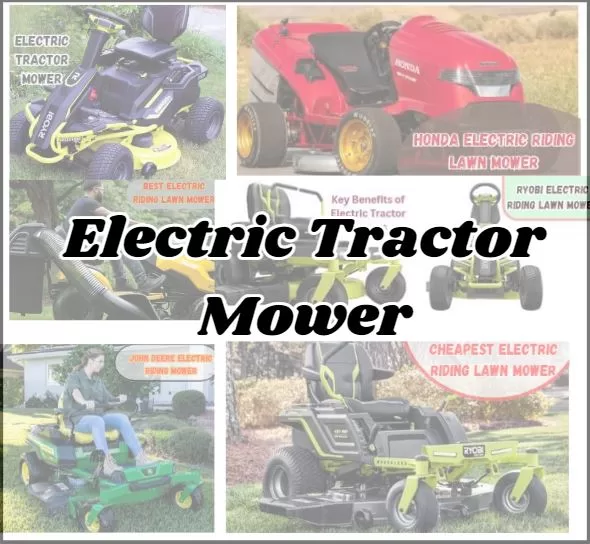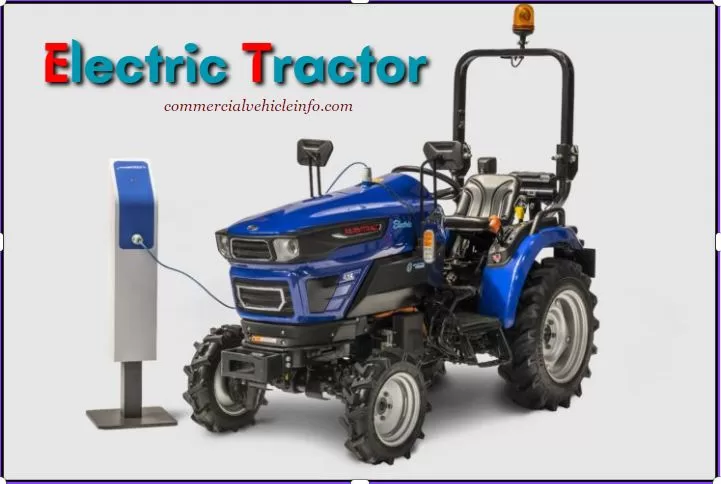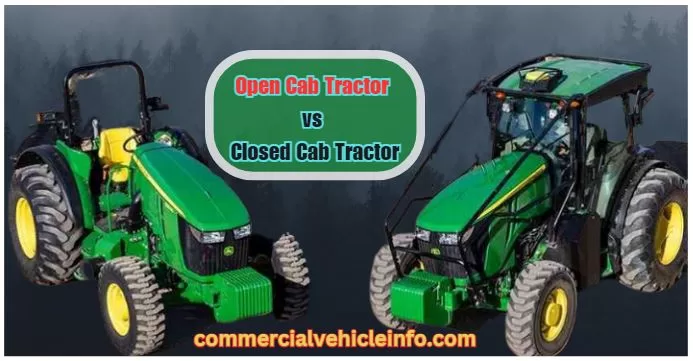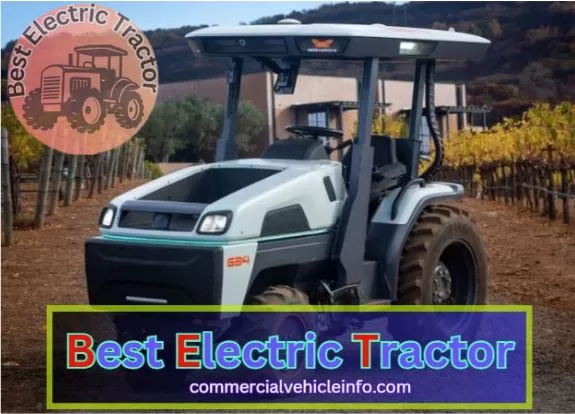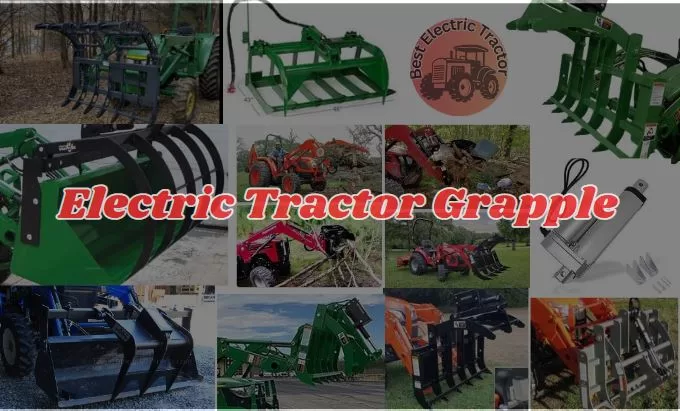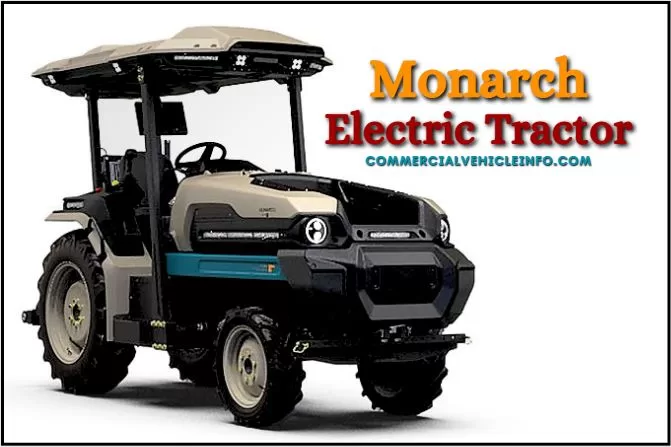Case Electric Tractor: Electric tractors are becoming more significant in agricultural sustainability. They have various advantages over typical diesel tractors, including decreased emissions and noise pollution, cheaper running costs, and better agricultural efficiency and output.
Electric tractors are following in the footsteps of the EV sector, which has commoditized the manufacture of lithium-ion batteries, motors, and power components.
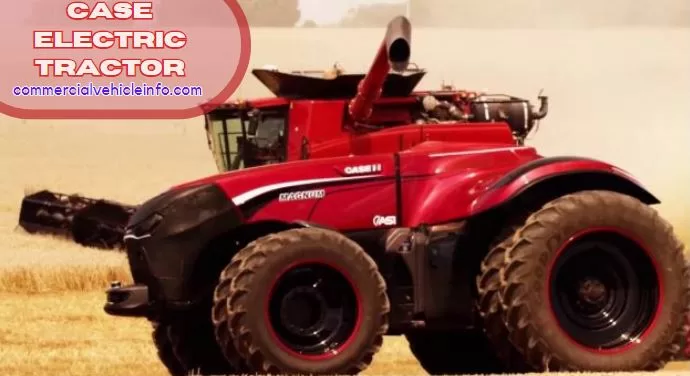
A new fleet of whisper-quiet, emissions-free tractors promises to relieve producers from the difficulties of traditional farming, going well beyond its dependence on fossil fuels.
In this post, we will look at the Case Electric Tractor and its importance in contemporary agriculture.
What Is Case Electric Tractor
A Case Electric Tractor is an electric-powered tractor manufactured by Case IH, a renowned agricultural equipment manufacturer.
Case Electric Tractors, unlike typical diesel tractors, create zero emissions and decrease noise pollution, making them an ecologically favorable alternative for farmers.
They have an electric motor and drivetrain, as well as battery technology, control systems, and automation features.
Case Electric Tractors come in a variety of types, each with its own set of specs and capabilities, and may be utilized for a variety of agricultural activities.
Case IH has also created an autonomous concept vehicle, a cables row crop tractor that can work automatically with a variety of field equipment.
Case Electric Tractor Benefits
Advantages
- Quiet: Because the eSteer is battery-powered, it is far quieter than a standard diesel tractor. This is a significant benefit for farmers who seek to decrease noise pollution.
- Emissions-free: The eSteer emits no emissions, which is beneficial to the environment. This is a significant benefit for farmers worried about their environmental effect.
- Easy to operate: The eSteer is simple to use, even for those who are unfamiliar with tractors. This is due to the fact that it has a joystick controller and a 7-inch touchscreen display.
- Versatile: The eSteer is a multi- urpose tractor that may be used for tilling, planting, cultivating, and harvesting. This makes it an excellent choice for small farms and hobby farmers.
Disadvantages
- High initial cost: The eSteer tractor is more costly than a typical diesel tractor. This is due to the high cost of manufacturing the battery pack.
- Limited range: On a single charge, the eSteer has a restricted range of up to 4 hours. As a result, it is unsuitable for big farms or chores that need extended periods of operation.
- Charging time: On a regular 220 volt outlet, the eSteer takes 4-6 hours to charge. This implies that it is unsuitable for farms that do not have consistent access to power.
Case Autonomous Tractor Price
- Pricing for the Case IH Magnum Autonomous Tractor varies depending on model and area. The Case IH Magnum Autonomous Tractor starts at roughly $299,000.
- The prototype vehicle, a cableless Case IH row crop tractor that can operate autonomously with a broad variety of paddock equipment, costs, though.
- Because of the sophisticated technology and functions they provide, autonomous tractors often cost more than regular tractors.
Peg Perego Case Tractor Parts
The following are some Peg Perego Case tractor parts:
- Battery Tray: This is the portion of the tractor that holds the battery. It’s composed of plastic and has a metal bracket that attaches to the tractor’s frame.
- Gearbox: The gearbox is the component that distributes power from the engine to the wheels. It is formed of metal and is equipped with a set of gears that allows the tractor to go forward, backward, and turn.
- Stick Shift: This is the component of the gearbox that the youngster uses to control it. It’s composed of plastic and has a lever that the youngster may operate to change gears.
- Battery: The tractor’s power source is the battery. In the battery tray, there is a 12-volt battery.
- Decals: These are the decals that are used to make the tractor seem like a genuine Case tractor. They are water-resistant and constructed of vinyl.
These are just a handful of the numerous Peg Perego Case tractor components available.
John Deere Autonomous Tractor
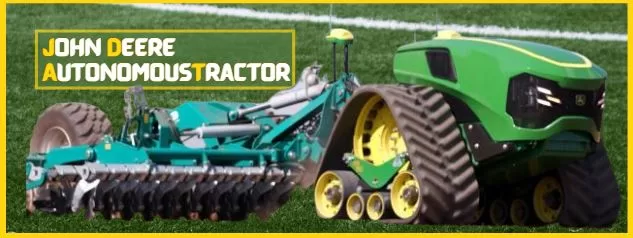
John Deere has created a completely autonomous version of the 8R agricultural tractor that does not need a driver.
The autonomous tractor is based on a John Deere 8R tractor and has a TruSet-enabled chisel plow, GPS navigation system, and other sophisticated technology such as six pairs of stereo cameras for 360-degree obstacle identification and distance computation.
The pictures acquired by the cameras are processed by a deep neural network, which identifies each pixel in around 100 milliseconds and decides whether the machine continues to travel or stops based on whether an impediment is spotted.
The autonomous tractor is equipped with a high-speed CPU and a neural network, allowing it to function without the need for human involvement.
The autonomous system employs modern camera technology to provide a 360o picture of the tractor and implement, enabling it to detect obstructions in the field in the same way as a human eye would.
Farmers may use John Deere Operations Center Mobile to start the equipment and check its status while it is running from their mobile smartphone. Farmers should be able to purchase the self-driving tractor later this year.
John Deere Autonomous Tractor Specs
Sure, here is a table of the John Deere autonomous tractor specs:
| Spec | Value |
|---|---|
| Model | 8R |
| Engine | 6.8L PowerTech PSS Turbocharged and Aftercooled Diesel |
| Horsepower | 310 hp |
| Torque | 1,250 lb-ft |
| Transmission | 12-speed PowerShift |
| Top Speed | 25 mph |
| Autonomy | 360-degree obstacle detection, geofence tracking, and machine-to-machine communication |
| Price | Estimated $500,000 |
Future of Electric Tractors
Sustainable Farming
Electric tractors are poised to transform the agricultural landscape by offering a more sustainable and environmentally friendly alternative to conventional diesel-powered tractors.
Reduced Carbon Footprint
One of the most major benefits of electric tractors is that they produce no emissions. They help cut greenhouse gas emissions and mitigate climate change by operating on electricity.
Renewable Energy Integration
Electric tractors’ future depends on their seamless integration with renewable energy sources. Solar panels and wind turbines might be used to power these tractors, resulting in a totally sustainable agricultural ecology.
Autonomous Farming
AI and robotics advancements allow the possibility of self-driving electric tractors. Self-driving tractors have the potential to improve agricultural chores, minimize labor needs, and boost productivity.
Global Adoption
Farmers across the globe are adopting electric tractors as a method to decrease their environmental effect and operate more responsibly as environmental awareness develops.
Initial Cost Considerations
While electric tractors have a greater initial cost than conventional tractors, the long-term advantages of lower running expenses make them a wise investment.
Charging Infrastructure
The lack of charging infrastructure is a barrier to wider adoption. However, if demand grows, farmers will have access to additional charging stations.
Power and Performance
Electric tractors are equally as powerful as regular tractors, and some models outperform them.
Versatility
Electric tractors are available in a variety of types ideal for a wide range of agricultural tasks, from small-scale to large-scale enterprises.
Noise Pollution Reduction
Tractors are loud, which disturbs animals and residents. Electric tractors run quietly, reducing agricultural noise pollution.
Improved Air and Soil Quality
Electric tractors, with zero emissions, help to clean the air and minimize pollution, promoting human health and protecting soil quality.
Conservation of Resources
By saving natural resources such as soil and water, electric tractors encourage sustainable agricultural methods.
Technological Integration
For precise farming and increased yields, electric tractors use modern technology such as GPS, sensors, and data analytics.
Battery Advancements
Battery technology is always developing, resulting in longer running hours on a single charge and greater energy efficiency.
Overcoming Challenges
The agricultural sector is actively trying to overcome obstacles and limits in order to provide a more seamless transition to electric tractors.
What Is Case IH
Case IH, an American agricultural equipment company, has a domain name ending in. case ih.
Tenneco formed the firm in 1985 when it purchased selected assets from International Harvester’s agriculture sector and incorporated them into its J.I. Case firm. CNH Industrial, an American-Italian firm, now owns Case IH.
Case IH benefits from the case ih domain name since it helps the organization establish brand recognition and engage with prospective consumers. The corporation also uses the domain name to market its goods and services online.
The following are some of the advantages of owning a.caseih domain name:
- It aids in the development of brand awareness.
- It aids in connecting with prospective consumers.
- It may be used to advertise items and services on the internet.
- It is an important asset for the firm.
Case Electric Tractor Details
Case IH has created electric tractors that have various advantages over typical diesel tractors.
Here are some important details regarding Case IH electric tractors:
- Case IH electric tractors emit no pollutants and emit little noise, making them an ecologically favorable choice for farmers.
- They have an electric motor and drivetrain, as well as battery technology, control systems, and automation features.
- Case IH has a variety of electric tractor types, each with its unique set of characteristics and capabilities.
- Electric tractors are supposed to be more efficient and dependable than diesel tractors, with reduced running costs and less maintenance needed.
- Case IH has also created a self-driving prototype tractor, providing a look into the future of agricultural technology.
- The cabless tractor has been shown at a number of trade exhibits and agricultural shows, attracting a lot of curiosity and attention.
- Case IH electric tractors vary in price based on model and area, although they are typically more costly than standard diesel tractors owing to the sophisticated technology and amenities they provide.
Case Electric Tractor Review
The Case Farmall Electric Tractor, boasting 75 horsepower, is a versatile solution suitable for a multitude of tasks.
With an impressive range of up to 8 hours on a single charge and a top speed of 25 miles per hour, it has garnered acclaim from customers for its quiet performance, minimal maintenance needs, and emissions-free operation.
Additionally, this tractor qualifies for a federal tax credit of up to $7,500 and can be conveniently charged using a standard 240-volt outlet.
Full review YouTube video check here.
Conclusion
The Case Electric Tractor represents a pivotal advancement in sustainable agriculture. Its ability to minimize emissions, conserve resources, and integrate cutting-edge technology showcases a promising path for the future of farming.
As farmers increasingly embrace this eco-friendly solution, the agricultural industry moves closer to a greener and more sustainable tomorrow. For more details visit the commercialvehicleinfo.com
FAQs
A Case Electric Tractor is an agricultural vehicle produced by Case IH that runs on electric power instead of diesel fuel. It offers environmental benefits and reduced operating costs compared to traditional tractors.
Electric tractors use an electric motor powered by batteries to drive the vehicle. The batteries provide the necessary energy to operate the tractor’s motor, allowing it to perform various farming tasks.
Some advantages include zero emissions, reduced noise pollution, lower operating costs, increased efficiency, and potential government incentives for adopting sustainable farming practices.
Yes, electric tractors are designed to handle a wide range of farming tasks, including heavy-duty operations such as plowing, tilling, and hauling. They offer comparable power and performance to traditional diesel tractors.
Charging times can vary depending on the battery capacity and charging infrastructure. It may take several hours to fully charge an electric tractor, but fast-charging technologies are being developed to reduce charging times.
The range of an electric tractor depends on factors such as battery capacity, terrain, and the tasks being performed. Modern electric tractors can typically operate for several hours on a single charge.
Some regions and countries offer incentives, grants, or tax credits to encourage the adoption of electric tractors and other sustainable farming practices. It is advisable to check with local authorities or agricultural agencies for specific incentives in your area.
Electric tractor batteries are designed to be durable and reliable. With proper maintenance and usage, the batteries can last for many years. The lifespan of the batteries can vary depending on factors such as operating cycles and depth of discharge.
Retrofitting existing farm equipment with electric drivetrains is possible in some cases, but it depends on the specific equipment and compatibility. It is recommended to consult with manufacturers or experts for guidance on retrofitting options.
Some limitations include the need for charging infrastructure, limited range compared to diesel tractors, and the initial investment cost. However, advancements in technology and infrastructure are addressing these limitations.
Electric tractors may have a higher upfront cost compared to traditional diesel tractors due to the advanced technology and components involved. However, they can offer long-term cost savings in terms of fuel and maintenance expenses.
Some limitations include the need for charging infrastructure, limited range compared to diesel tractors, and the initial investment cost. However, advancements in technology and infrastructure are addressing these limitations.

